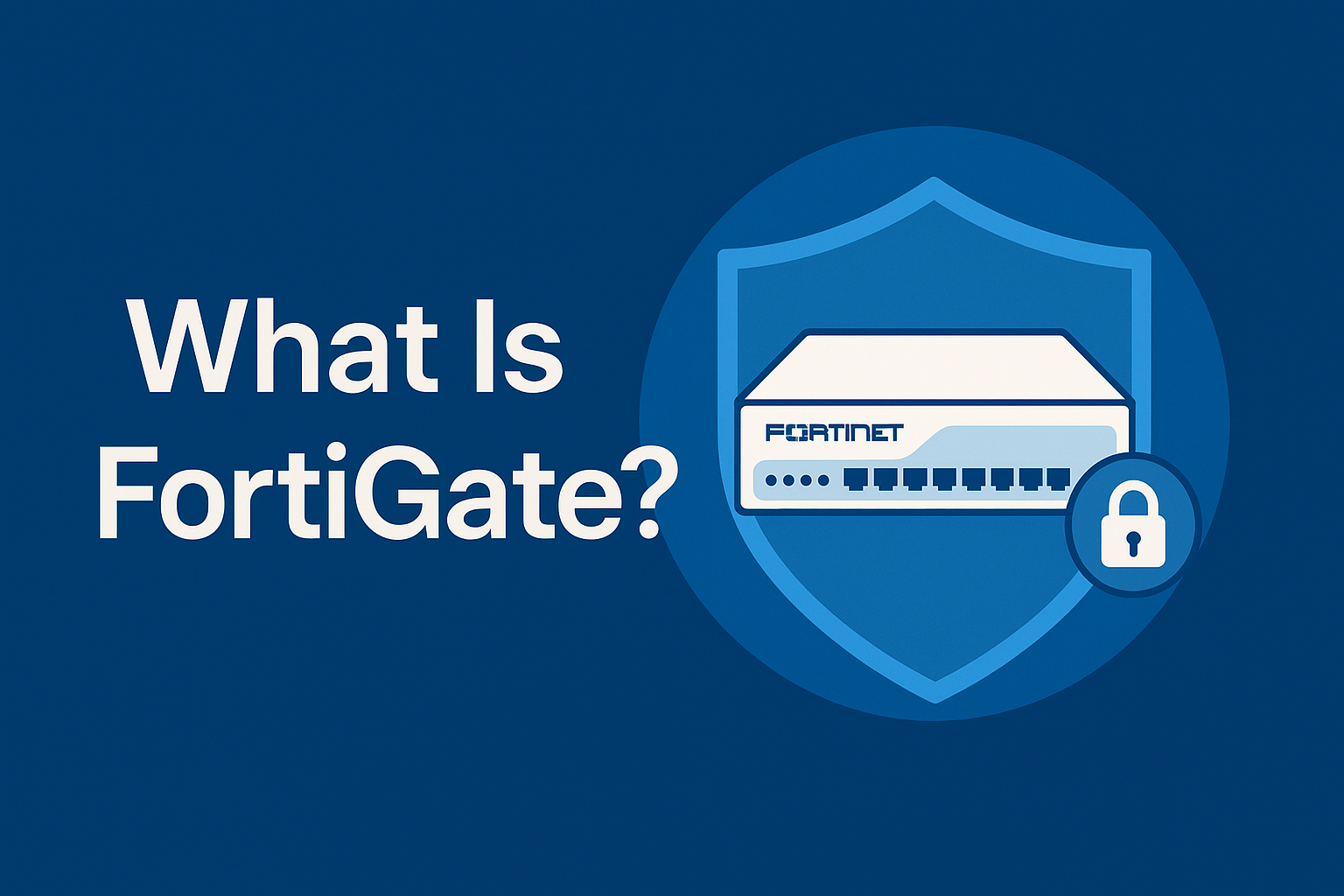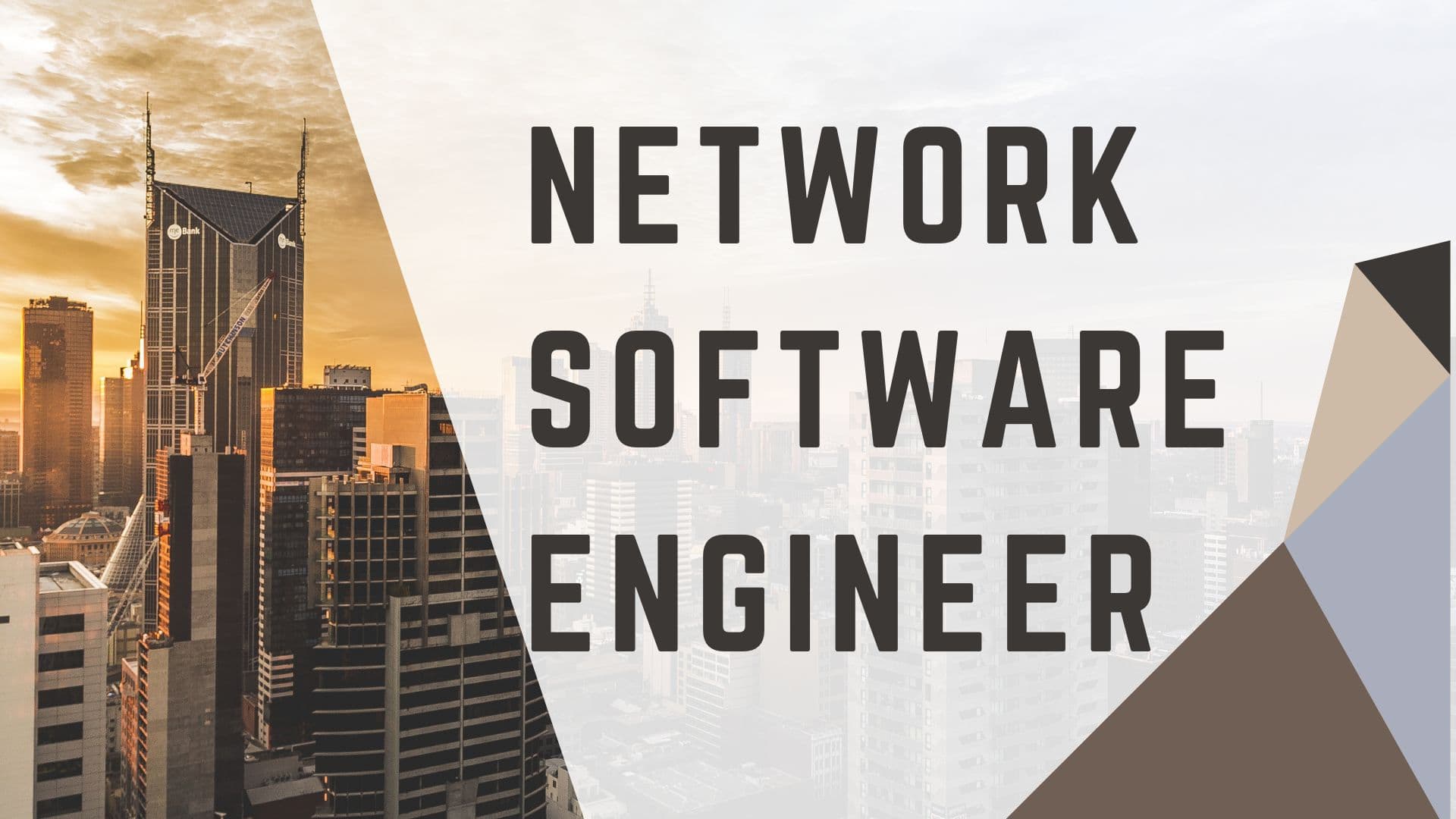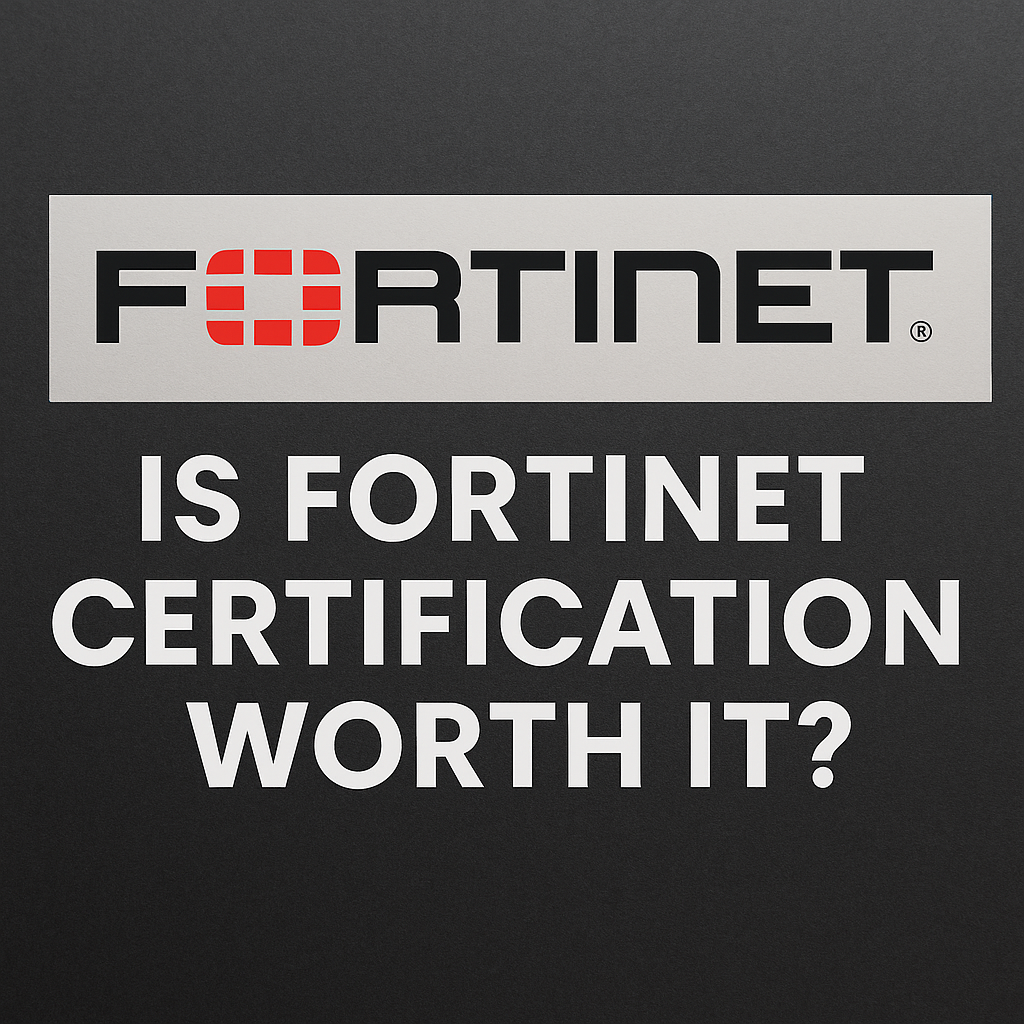TRUSTED BY THE SMARTEST TEAMS IN THE WORLD FOR CERTIFIED CANDIDATES
SPOTO Blogs
Useful learning materials to become certified IT personnel
-
- 1123
- SPOTO
- 2025-05-22 14:06
-
- 832
- Emma
- 2025-05-22 12:09
-
- 1122
- Emma
- 2025-05-22 11:17
-
- 1706
- SPOTO
- 2025-05-22 10:21
-
- 884
- SPOTO
- 2025-05-21 14:43
-
- 624
- SPOTO
- 2025-05-21 14:19
-
- 802
- Emma
- 2025-05-21 12:19
-
- 2003
- SPOTO
- 2025-05-21 11:38
-
- 919
- Emma
- 2025-05-21 11:33
TRUSTED BY THE SMARTEST TEAMS IN THE WORLD FOR CERTIFIED CANDIDATES
SPOTO Blogs
Useful learning materials to become certified IT personnel
-
- 1123
- SPOTO
- 2025-05-22 14:06
Table of Contents1. What is a Voice Network Engineer?2. What does a Voice Network Engineer do?3. Career Insights: Salary, Outlook & Related Roles4. What Are the Qualifications to Become a Voice Network Engineer?5. Summarize Voice Network Engineer is a professional technician who is responsible for the management, monitoring and maintenance of conventional telecommunication platforms, telecommunication systems and telecommunication infrastructure of enterprises and organizations.This article will introduce you to what a Voice Network Engineer is, the career information and prospects of a Voice Network Engineer and the necessary conditions to become a Voice Network Engineer. 1. What is a Voice Network Engineer? Voice Network Engineer is a professional technician who is responsible for the management, monitoring and maintenance of conventional telecommunication platforms, telecommunication systems and telecommunication infrastructure of enterprises and organizations. 2. What does a Voice Network Engineer do? Voice network engineers are responsible for designing and implementing a business or organization's computer and information networks, such as local area networks (LANs), wide area networks (WANs), intranets, extranets, and other data communications networks. Second, they are responsible for performing network modeling, analysis, and planning, including analyzing capacity requirements for network infrastructure. Additionally, they may design network and computer security measures, so they need to research and recommend network and data communications hardware and software. 3. Career Insights: Salary, Outlook & Related Roles (1) Voice Network Engineer Salary According to ZipRecruiter, the average hourly wage for a Network Voice Engineer in the United States is $47.89 as of May 14, 2026. Hourly wages can be as high as $67.07 and as low as $10.10, but most Network Voice Engineer salaries currently range from $40.62 to $58.17 across the United States. The average salary range for a Network Voice Engineer varies greatly, which means there may be many opportunities for advancement and increased pay based on skill level, location, and years of experience. (2) Job Outlook of Voice Network Engineer The job outlook for network voice engineers is positive, with the U.S. Bureau of Labor Statistics (BLS) stating that network engineering job opportunities will grow by about 3% through 2031. While this growth rate is slightly slower than the average for other occupations, the BLS states that “despite limited job growth, an average of about 23,900 new network and computer systems administrator positions are expected to be created annually over the next decade.” And network engineering jobs are expected to grow by 3% through 2031. (3) Similar Occupations Unified Communications (UC) Engineer VoIP Engineer Cisco Voice Engineer (CUCM Specialist) Contact Center Engineer (UCCX/UCCE) Voice Architect / UC Solutions Architect SIP Engineer / SBC Engineer IT Support / Telecom Support Specialist Telecommunications Engineer Collaboration Engineer Network Engineer (with VoIP emphasis) 4. What Are the Qualifications to Become a Voice Network Engineer? (1) Obtain a Bachelor's Degree The recruitment of Voice Network Engineers often requires a bachelor's degree in computer science or a related major or a higher degree in a related major. In addition, relevant professional skills and internship experience are also very important, so job seekers are required to learn relevant practical experience during school. (2) Develop professional skills The most common important skills required for the Voice Network Engineer position are customer service, switches, deployment, scripting, CCNA, firewalls, and LAN. In addition, employers list security clearance as a desirable experience in VOIP engineer job descriptions, even though security clearance appears 6.87 times less often in resumes than in general, indicating that if you have experience in this area, it is worth considering adding this keyword. In addition, job seekers' skills in areas such as customer service, switches, deployment, scripting, firewalls, LANs, PBXs, project management, Linux, VPNs, etc. are also extremely important and must be fully reflected in the resume. (3) Earn Industry Certifications Experience in the IT industry is crucial in your job search, so you should receive on-the-job training. Many employers want to hire people who are certified in a specific company. Cisco is one of the most common systems, so getting a Cisco certification will give you the best chance of success in the job market.CCIE Collaboration certification demonstrates your advanced skills in planning, designing, implementing, operating, and optimizing complex enterprise collaboration solutions. Earn the Cisco Certified Internetwork Expert (CCIE) Collaboration certification to show employers your expertise in Voice Networks. 5. Summarize Voice Network Engineer is a professional technician who is responsible for the management, monitoring and maintenance of conventional telecommunication platforms, telecommunication systems and telecommunication infrastructure of enterprises and organizations.The recruitment of Voice Network Engineers often requires a bachelor's degree in computer science or a related major or a higher degree in a related major.CCIE Collaboration certification demonstrates your advanced skills in planning, designing, implementing, operating, and optimizing complex enterprise collaboration solutions. Earn the Cisco Certified Internetwork Expert (CCIE) Collaboration certification to show employers your expertise in Voice Networks. -
- 832
- Emma
- 2025-05-22 12:09
Table of Contents1. An Overview of Enterprise Architect2. The Details3. Why become an Enterprise Architect?4. How to start a career as an Enterprise Architect?5. Conclusion 1. An Overview of Enterprise Architect In today's complex technological landscape, businesses are continually evolving, integrating new systems, data, and processes to stay competitive. At the heart of this digital transformation is the Enterprise Architect (EA). This strategic role acts as a bridge between business needs and technology solutions, ensuring that an organization's IT infrastructure aligns seamlessly with its overarching goals. But what exactly does an Enterprise Architect do, and how can you embark on this promising career path? 2. The Details Required Skills and Traits for an Enterprise Architect An Enterprise Architect is a multifaceted professional tasked with designing, planning, and overseeing a company's entire IT ecosystem. To succeed, they need a blend of technical expertise, strategic insight, and interpersonal skills. Core Skills and Traits Technical Proficiency: Deep understanding of IT infrastructure, cloud computing, cybersecurity, software development, and data management. Strategic Thinking: Ability to see the big picture, align IT initiatives with business objectives, and anticipate future technological trends. Communication Skills: Explaining complex technical solutions to non-technical stakeholders and fostering collaboration. Problem-Solving: Quickly addressing and resolving architectural issues that could impede business functions. Leadership and Influence: Guiding cross-functional teams and influencing decision-makers to adopt innovative solutions. Adaptability: Staying current with rapidly evolving tech trends and adjusting strategies accordingly. Related Roles If you find yourself drawn to roles that blend business and tech but aren't ready to become an EA, consider positions like: Solution Architect Business Analyst IT Strategist Each offers pathways for growth and specialization within the enterprise ecosystem. 3. Why become an Enterprise Architect? Salary and Job Outlook The demand for Enterprise Architects is soaring as businesses undergo digital transformation. According to industry reports, average salaries for EAs range from $120,000 to over $180,000 annually, depending on location and experience. The role's strategic importance ensures high compensation alongside job security. Career Growth and Job Stability As organizations grow more dependent on technology, EAs are increasingly seen as essential leadership figures. Moving into senior management, CIO, or CTO roles is a natural progression—consolidating both technical expertise and strategic influence. Moreover, the stable nature of the role offers resilience against economic fluctuations. Diverse Challenges and Opportunities for Growth Every enterprise has unique challenges—from legacy systems to integrating cutting-edge technologies like AI and IoT. Embracing these diversity of problems makes the role dynamic and intellectually stimulating. Continuous learning, certification, and cross-disciplinary exposure foster ongoing growth, presenting opportunities to specialize in cybersecurity architecture, cloud strategy, or data governance. 4. How to start a career as an Enterprise Architect? Embarking on this career requires a combination of education, experience, and continuous self-improvement: Obtain a Strong Educational Foundation Most successful EAs hold a bachelor's degree in Computer Science, Information Technology, or Systems Engineering. An advanced degree such as an MBA or a Master's in IT Management further enhances strategic thinking and leadership skills. Gain Relevant Experience Moving into an EA role typically necessitates years of experience in IT roles—systems analysis, infrastructure management, or software development. Building broad expertise across various domains equips you with the versatile knowledge needed to design comprehensive architectures. Obtain Certification and Develop Soft Skills Earning industry-recognized certifications such as AWS Certified Solutions Architect Professional or PMI's Project Management Professional (PMP) showcases your technical credibility and solid understanding of enterprise operations and cloud architecture. Simultaneously, cultivating soft skills such as stakeholder management, negotiation, and strategic planning remains crucial for effective leadership. These combined technical and interpersonal skills position you as a well-rounded professional capable of guiding enterprise technology initiatives. Build a Portfolio of Projects Hands-on experience, especially leading cross-departmental initiatives, positions you as a competent architect. Seek opportunities to influence technology decisions and participate in strategic planning. Continuous Learning Stay informed about emerging tech trends—AI, blockchain, cloud computing—and earn relevant certifications. Networking through industry conferences and professional groups nurtures growth and keeps you ahead of the curve. 5. Conclusion The role of an Enterprise Architect sits at the intersection of technology and business strategy, making it both a challenging and rewarding career. With organizations investing heavily in digital transformation, skilled EAs are more crucial than ever—not only for optimizing technology landscapes but also for shaping the future of enterprise innovation. If you possess a blend of technical expertise, strategic vision, and leadership qualities, stepping into the world of enterprise architecture could be your next exciting move. Through continuous learning, experience, and certification, you can position yourself as a pivotal figure in the digital age. Ready to take the leap? Start by enhancing your skills today, and prepare to lead your organization into its digital future with confidence and clarity. -
- 1122
- Emma
- 2025-05-22 11:17
Table of Contents1. An Overview of IT Project Manager2. The Details3. Why become an IT Project Manager?4. How to start a career as an IT Project Manager?5. Conclusion Are you a natural leader with excellent communication skills and a passion for technology? Do you thrive under pressure and excel at organizing complex projects? If so, a career as an IT Project Manager might be your perfect fit. With the rapid growth of the tech industry, now is the ideal time to explore this dynamic role—one that combines technical expertise, strategic planning, and leadership. 1. An Overview of IT Project Manager An IT Project Manager is the strategic mastermind behind successful technology initiatives. Their primary goal? To plan, execute, and complete IT projects that align with business objectives. From deploying new software systems to implementing cybersecurity measures, IT project managers work across sectors—healthcare, finance, education, and more—to keep organizations on the cutting edge. Their responsibilities are broad and vital. They create project timelines, select team members, organize workflows, manage budgets, and ensure timely delivery. Their role is indispensable in today's fast-paced digital landscape. 2. The Details Required Skills and Traits for an IT Project Manager Success as an IT Project Manager hinges on a combination of soft skills and technical know-how: Leadership & Communication: Clear articulation of goals and expectations. Problem-Solving & Adaptability: Navigating unforeseen challenges efficiently. Time & Budget Management: Prioritizing tasks and controlling costs. Team Collaboration: Building rapport and motivating diverse teams. Technical proficiency adds depth to their skill set. Knowledge of project management methodologies (Agile). Familiarity with tools like Microsoft Project. Risk management and cybersecurity awareness. Beyond skills, traits like patience, organization, professionalism, and a passion for continuous learning define successful IT project managers. They thrive in fast-paced environments and dedicate themselves to honing their craft through certifications and training. Related Roles If you're interested in the broader tech management landscape, consider roles like IT Program Manager Product Manager IT Consultant IT Director Each role offers unique challenges and opportunities for growth within the tech ecosystem. 3. Why become an IT Project Manager? Salary and Job Outlook According to recent data, the median salary for IT Project Managers in the US exceeds $103,250 annually, with growth prospects climbing rapidly. The Bureau of Labor Statistics projects a staggering 61% growth rate over the next decade—much faster than average—indicating high demand for skilled professionals. Career Growth and Job Stability An IT project management career offers not just lucrative compensation but also stability and advancement opportunities. As organizations digitize, the need for experienced project managers will only increase, providing a secure and rewarding career pathway. Diverse Challenges and Opportunities for Growth No two projects are the same, whether it's implementing a new cloud infrastructure or managing cybersecurity upgrades. This constant diversity keeps the role engaging and prevents stagnation. Moreover, tackling complex problems and leading multidisciplinary teams foster valuable skills like strategic thinking, resilience, and adaptability. As you gain experience, you can climb the ladder into higher management positions or specialize in niche areas like cybersecurity project management, ensuring continuous professional growth. 4. How to start a career as an IT Project Manager? Embarking on this career path requires strategic steps: Step 1: Get Educated Most employers prefer candidates with a bachelor's degree in fields like computer science, management information systems, or related areas. If you're new to tech, pursuing a relevant degree program is a solid start. For experienced IT professionals, certifications can sometimes replace formal degrees. Step 2: Gain Experience Experience is key. Starting in roles such as help desk technician, IT support, or other technical positions allows you to build a foundation. Internships in project management or supporting roles can provide invaluable hands-on exposure. Consistent work in IT and project environments prepares you for larger responsibilities. Step 3: Obtain Certification Certifications not only validate your skills but also increase employability. The PMP certification is an excellent starting point for aspiring project managers. It covers the project lifecycle, resource management, and communication—core competencies for success. SPOTO offers top-tier training courses and practice exams to help you prepare for these certifications efficiently and confidently. Fast-Track Pathways with SPOTO If you're eager to accelerate your progress, our tailored courses, including exam simulations and expert-led instruction, prepare you comprehensively for certifications and real-world applications. Whether you're starting fresh or enhancing existing skills, SPOTO is your partner in success. 5. Conclusion The role of an IT Project Manager is more than just managing schedules. It's about facilitating innovation, solving complex problems, and driving organizational success. With the demand rising and lucrative salaries on offer, this is a career worth pursuing. By acquiring the right education, gaining pertinent experience, and earning recognized certifications—with SPOTO guiding you every step—you can unlock a future filled with opportunity, growth, and achievement. Start your journey today with SPOTO's dedicated IT project management courses and take the first step toward an exciting career! -
- 1706
- SPOTO
- 2025-05-22 10:21
Table of ContentsWhat Is FortiGate?Evolution and ArchitectureCore CapabilitiesDeployment ScenariosUse CasesWhy Choose FortiGate? In today’s hyper-connected landscape, organizations face an ever-expanding array of cyberthreats—ranging from sophisticated malware and ransomware to zero-day exploits and encrypted attacks lurking within SSL/TLS traffic. Traditional, port-based firewalls can no longer keep pace with the scale and complexity of modern attacks. Enter Fortinet’s FortiGate: a next-generation firewall (NGFW) platform that combines hardware-accelerated performance, deep visibility, and AI-driven threat intelligence to deliver comprehensive network security across hybrid environments. What Is FortiGate? FortiGate is Fortinet’s flagship next-generation firewall solution, designed to protect data, assets, and users across on-premises, cloud, and edge deployments. Built on Fortinet’s proprietary ASIC-based security processors, FortiGate appliances accelerate both security inspection and networking functions in a single, scalable platform. With over 50% global market share in NGFWs, FortiGate is the most widely deployed network firewall solution worldwide. Key attributes of the FortiGate platform include: Unified Security and Networking: Integrated threat prevention (intrusion prevention, antivirus, application control, web filtering) alongside advanced networking features (SD-WAN, VPN, routing). ASIC-Powered Acceleration: Purpose-built NPUs (Network Processing Units) deliver high throughput and ultra-low latency, even when inspecting encrypted traffic. AI-Driven Threat Intelligence: Continuous updates from FortiGuard Labs provide real-time protection against emerging threats, including those hidden in SSL/TLS streams. Flexible Deployment Options: Available as physical appliances (small desktop units to high-density chassis), virtual machines, containerized workloads, and cloud-native instances. Evolution and Architecture Fortinet introduced the original FortiGate physical firewall in 2002. Since then, the platform has evolved into a comprehensive security operating system—FortiOS—that underpins all FortiGate models. FortiOS delivers a consistent feature set across hardware and virtual form factors, enabling centralized policy management and rich analytics via FortiManager and FortiAnalyzer. ASIC-Based Security Processors At the heart of every FortiGate appliance are patented ASICs, such as the SPU NP6 for data-plane acceleration and CP9 for control-plane efficiency. These processors offload security functions—like deep packet inspection and encryption/decryption—from the general-purpose CPU, ensuring line-rate performance even under heavy workloads, including full SSL/TLS inspection of encrypted traffic. Fortinet Security Fabric FortiGate integrates natively into the Fortinet Security Fabric, a broad ecosystem of FortiGuard-powered products and third-party solutions. The Fabric enables: Automatic Threat Correlation: Alerts from FortiGate, endpoints, email gateways, and other Fabric devices are consolidated to accelerate incident response. Adaptive Segmentation: Dynamic microsegmentation policies isolate critical assets and prevent lateral movement of attackers. Single-Pane Management: A unified console for policy orchestration, logging, and compliance reporting reduces administrative complexity. Core Capabilities 1. Advanced Threat Protection Intrusion Prevention System (IPS): Real-time detection and blocking of network exploits and vulnerabilities. Antivirus/Anti-Malware: Scans files at the gateway, blocking known malware signatures and behavioral threats. Web Filtering & URL Categorization: Controls user access to malicious or non-productive websites. Application Control: Identifies and manages thousands of applications (e.g., social media, VoIP) regardless of port or protocol. Sandboxing: Suspicious files can be detonated in a cloud-based sandbox (FortiSandbox) to uncover zero-day malware. 2. SSL/TLS Inspection With Gartner estimating that over 80% of web traffic is encrypted, traditional firewalls blind-spot critical threats within SSL/TLS streams. FortiGate’s high-performance SSL inspection decrypts, scans, and re-encrypts traffic inline—uncovering hidden malware and command-and-control communications without compromising throughput. 3. Secure SD-WAN FortiGate’s Secure SD-WAN capabilities allow enterprises to: Prioritize mission-critical applications. Leverage multiple WAN links (MPLS, broadband, LTE) with dynamic path selection. Enforce consistent security policies across all branches, reducing costs and simplifying operations. 4. VPN and Zero Trust Access IPsec and SSL VPN: Provides secure remote access for users and site-to-site connectivity. ZTNA (Zero Trust Network Access): Microsegmented access ensures users only connect to authorized applications, minimizing attack surface. Deployment Scenarios FortiGate’s modular design caters to a broad range of environments: Deployment Type Form Factor Use Case Small Office / Branch FortiGate-20 to -60E Series Desktop appliances for SMBs and remote offices Enterprise Campus / DC FortiGate-1000 to -7000 Series High-density rack units for data centers Virtualized Environments FortiGate-VM (VMware, KVM) Cloud instances and private cloud integration Containerized / Cloud FortiGate CNF / Cloud NGFW Kubernetes environments and public cloud security As-a-Service FortiGate-as-a-Service (FGaaS) Fully managed firewall service Use Cases Data Center Security: High-performance chassis models protect east-west traffic with deep inspection and segmentation, ensuring compliance and minimizing risk in critical infrastructure. Branch Office Connectivity: Secure SD-WAN simplifies WAN management, lowers costs, and delivers consistent threat protection in distributed networks. Cloud Workloads: FortiGate Cloud-Native Firewalls (CNF) secure microservices and APIs in containerized environments with zero operational overhead. Unified SASE: Combined with FortiClient and FortiSASE, FortiGate extends zero-trust access to remote users, providing consistent policies and threat intelligence across the network edge. Why Choose FortiGate? Unmatched Performance: ASIC acceleration delivers multi-gigabit inspection—unlike software-only NGFWs—enabling full SSL/TLS decryption at scale without sacrificing user experience. Comprehensive Threat Intel: Continuous threat updates from FortiGuard Labs incorporate global telemetry and AI analytics, ensuring timely defense against emerging attacks. Simplified Management: A unified OS (FortiOS) across all models, along with centralized management tools, reduces complexity and operational overhead. Scalability & Flexibility: From a small retail shop to global data center deployments, FortiGate scales with modular hardware, virtual instances, and cloud-native form factors. Security Fabric Integration: Open APIs and built-in Fabric connectors allow seamless orchestration with Fortinet and third-party solutions, delivering end-to-end security automation. -
- 884
- SPOTO
- 2025-05-21 14:43
Table of Contents1. What is a Site Reliability Engineer?2. What does a Site Reliability Engineer do?3. Career Insights: Salary, Outlook & Related Roles4. What Are the Qualifications to Become a Site Reliability Engineer? Site Reliability Engineers (SREs) are technical professionals responsible for a variety of tasks including system availability, latency, performance, efficiency, change management, monitoring, emergency response, and capacity planning. SRE focuses include automation, system design, and improvements to system resiliency.This article will introduce you to what a Site Reliability Engineer is, the career information and prospects of a Site Reliability Engineer and the necessary conditions to become a Site Reliability Engineer. 1. What is a Site Reliability Engineer? Site Reliability Engineers (SREs) are technical professionals responsible for a variety of tasks including system availability, latency, performance, efficiency, change management, monitoring, emergency response, and capacity planning. SRE focuses include automation, system design, and improvements to system resiliency. 2. What does a Site Reliability Engineer do? Site Reliability Engineers (SREs) are professional technicians responsible for a variety of tasks such as system availability, latency, performance, efficiency, change management, monitoring, emergency response, and capacity planning. SRE focuses on automation, system design, and improvements in system resilience. First, site reliability engineers (SREs) are responsible for identifying and fixing organizational system failures, which means they need to monitor sites and software to ensure their normal operation (including on-call), predict potential problems and propose solutions, and do post-event reviews. Secondly, design and implement emergency response and data recovery strategies, and write automation code within the site infrastructure. Third, ensure that services are continuously available and maintain high reliability. Finally, site reliability engineers (SREs) collaborate with software developers, engineers, and operations teams to proactively resolve system anomalies and prevent similar problems from happening again. 3. Career Insights: Salary, Outlook & Related Roles (1) Site Reliability Engineer Salary According to ZipRecruiter, the average hourly salary for a Site Reliability Engineer in California is $62.91 as of May 13, 2026. Salaries range from as high as $90.62 to as low as $10.68, but the majority of Site Reliability Engineer salaries in California currently range from $54.09 to $71.88. The average salary range for a Site Reliability Engineer varies greatly (as much as 17%), which means there may be many opportunities for advancement and increased pay based on skill level, location and years of experience. (2) Job Outlook of Site Reliability Engineer After extensive research, interviews, and analysis, Zippia's data science team found that there are currently more than 6,989 reliability engineers in the United States. And in the past 5 years, the salary of reliability engineers has increased by 6%. Today, there are 44,471 active reliability engineer job vacancies in the United States. Zippia uses statistics to predict that the growth rate of reliability engineer positions will be 10% from 2018 to 2028, and approximately 30,600 new reliability engineer positions will appear in the next decade. (3) Similar Occupations DevOps Engineer Platform Engineer Systems Engineer (Cloud / Linux / Infrastructure) Cloud Engineer Software Engineer – Infrastructure / Backend Reliability Engineer (non-Site-specific) Observability Engineer Performance Engineer Security Engineer Production Engineer (Facebook/Meta term) 4. What Are the Qualifications to Become a Site Reliability Engineer? (1) Obtain a Bachelor's Degree The job requirements for Site Reliability Engineer require applicants to have a bachelor's degree in computer science, software engineering or related IT fields. However, the specific requirements vary depending on the company. Some companies require higher education or more internship experience. (2) Develop professional skills Site Reliability Engineers need to have extensive and in-depth computer software process technology. First, SREs need to be proficient in programming languages ​​such as Python, Go, or Java to develop automated tools and script daily operation and maintenance tasks. Second, familiarity with the Linux operating system and strong command line operation capabilities are essential for system troubleshooting. Furthermore, SREs also need to master cloud platforms to deploy and manage distributed system services, and proficiency in infrastructure as code tools such as Terraform and Ansible is also a necessary skill. Finally, they need to be proficient in monitoring, logging, and alerting tools such as Prometheus, Grafana, ELK Stack, or Datadog to visualize and monitor the operating status of the system in real time. SREs must also have excellent problem analysis and problem solving capabilities, the ability to respond quickly to system failures, and a deep understanding of core technologies such as networking, load balancing, and security in order to proactively identify and fix potential risks and ensure service reliability. (3) Earn Industry Certifications DevNet Professional certification demonstrates your ability to develop and maintain applications on Cisco platforms. With Cisco DevNet Professional certification, you will gain a unique combination of software and infrastructure skills to help you become a Site Reliability Engineer. -
- 624
- SPOTO
- 2025-05-21 14:19
Table of Contents1. What is a Network Software Engineer?2. What does a Network Software Engineer do?3. Career Insights: Salary, Outlook & Related Roles4. What Are the Qualifications to Become a Network Software Engineer ? Network software engineers are technical professionals who specialize in designing, building, and maintaining applications and systems for existing or new networks and network infrastructure. By writing and creating these platforms, network software engineers can help organizations operate more efficiently, improve organizational productivity, and achieve secure and stable network operations.This article will introduce you to what a Network Software Engineer is, the career information and prospects of a Network Software Engineer , and the necessary conditions to become a Network Software Engineer. 1. What is a Network Software Engineer? Network software engineers are technical professionals who specialize in designing, building, and maintaining applications and systems for existing or new networks and network infrastructure. By writing and creating these platforms, network software engineers can help organizations operate more efficiently, improve organizational productivity, and achieve secure and stable network operations. 2. What does a Network Software Engineer do? Network software engineers are primarily responsible for designing, developing, and maintaining software tools and platforms used to manage, monitor, or optimize network systems. First, they typically develop and maintain software applications that support an organization's network infrastructure using programming languages ​​such as Python, Go, or Java, and ensure that the developed software meets standards. In addition, network software engineers work with network engineers to define network requirements, analyze network performance data, and implement appropriate software solutions to resolve any issues found. Furthermore, they play a key role in the network environments of software-defined networks (SDN), network virtualization (such as Cisco ACI, VMware NSX), and cloud platforms (such as AWS, Azure, GCP). Network software engineers are responsible for creating and maintaining technical documentation and user manuals to guide the use and troubleshooting of the software applications they develop. Finally, they also participate in regular meetings and contribute to the overall network architecture design to ensure that the software solution meets the long-term goals of the organization. 3. Career Insights: Salary, Outlook & Related Roles (1) Network Software Engineer Salary According to ZipRecruiter, the average annual salary for a network software engineer in the United States is $147,524 as of May 13, 2026. That's about $70.92 per hour. That's $2,837 per week or $12,293 per month. Annual salaries can be as high as $205,500 and as low as $63,500, but most network software engineers currently make between $120,000 and $173,000 per year, with top earners making as much as $205,000 per year across the United States. The average salary range for a network software engineer varies widely (as high as $53,000), which means there may be many opportunities for advancement and pay increases based on skill level, location, and years of experience. (2) Job Outlook of Network Software Engineer According to the Bureau of Labor Statistics, employment of network and computer system administrators is expected to decline by 3% from 2023 to 2033. Despite the decline in jobs, an average of about 16,400 network and computer system administrator job openings are expected to appear each year over the next decade. All of these vacancies are expected to be used to fill those who change careers or exit the labor market (such as retirement). Research by Zippia's data science team found that the projected growth rate for network engineer positions is 5% from 2018 to 2028. And, although there are currently more than 168,129 network engineers in the United States, there are 72,346 active network engineer job openings in the United States. Therefore, the overall employment outlook is still relatively bright. (3) Similar Occupations Network Automation Engineer Network Programmer / Network Developer SDN Engineer (Software Defined Networking Engineer) Platform Engineer DevOps Engineer Site Reliability Engineer (SRE) Cloud Network Engineer Protocol Software Engineer Observability Engineer / Telemetry Developer API Developer for Networking Platforms 4. What Are the Qualifications to Become a Network Software Engineer ? (1) Obtain a Bachelor's Degree To become a Network Software Engineer, you first need to have a university degree recognized by the company. Typically, a Bachelor of Science degree in a related field such as Network Engineering, Computer Science, or Information Technology is the basis for entry into the industry. (2) Develop professional skills Network software engineers need to have a solid foundation in computer science and software engineering principles. First, they should be proficient in languages ​​such as Java, C++, and Python, and have a solid understanding of network protocols and technologies, such as being able to skillfully integrate and call various network APIs (such as RESTful API, gRPC, NetConf/YANG, SNMP, etc.). Secondly, strong analysis, problem-solving, and communication skills are essential to identifying and resolving network-related issues and working effectively with cross-functional teams. Finally, network engineers with experience in high-speed, highly scalable network architectures (DPDK, RDMA, hardware offload, network virtualization) are often given priority in the application process. (3) Earn Industry Certifications When applying for Network Software Engineer, it is helpful to obtain certain certifications as they can help you develop the key skills and knowledge required for the position and make your resume more noticeable to employers. Some employers prefer to hire candidates with experience in sales or a related technical field, such as engineering or computer science. DevNet Professional certification can demonstrate your ability to develop and maintain applications on Cisco platforms. With Cisco DevNet Professional certification, you will gain a unique combination of software and infrastructure skills to help you become a Network Software Engineer. -
- 802
- Emma
- 2025-05-21 12:19
Table of Contents1. An Overview of IT Service Manager2. The Details3. Why become an IT Service Manager?4. How to start a career as an IT Service Manager?5. Conclusion In today's digital-driven world, businesses rely heavily on IT infrastructure to stay competitive, agile, and innovative. The role of an IT Service Manager (ITSM) has become pivotal, serving as the bridge between technological prowess and strategic business objectives. Whether you're considering this career path or seeking to understand its significance, this guide provides a fresh perspective on why IT Service Managers are in high demand—and how you can launch a successful career in this exciting field. 1. An Overview of IT Service Manager An IT Service Manager is a professional responsible for overseeing all elements of an organization's IT services. Think of them as the conductors of a complex orchestra—ensuring all IT components, from hardware to cloud applications, work harmoniously to deliver exceptional value to the business. They focus not only on maintaining existing IT systems but also on continuous improvement, aligning IT strategies with business goals, and ensuring service quality. In essence, IT Service Managers don't just manage technology—they manage the service that technology provides, making sure it meets the needs of users and stakeholders efficiently and reliably. 2. The Details Roles and Responsibilities of IT Service Manager The role of an ITSM is multifaceted, blending technical knowledge with strong leadership and communication skills. Some core responsibilities include Service Strategy & Design: Developing IT service strategies aligned with business goals and designing service models that are scalable and resilient. Incident & Problem Management: Quickly resolving IT issues, minimizing downtime, and investigating root causes to prevent future incidents. Change Management: Overseeing updates and upgrades to IT systems in a controlled manner, minimizing risk. Service Level Management: Ensuring IT services meet agreed-upon standards through regular monitoring and reporting. Continuous Improvement: Regularly analyzing service performance and seeking avenues for enhancement. Related Jobs: IT Operations Manager IT Business Partner Service Delivery Manager 3. Why become an IT Service Manager? Salary and Job Outlook The demand for skilled IT Service Managers is soaring—driven by digital transformation across industries, cloud adoption, and the need for robust cybersecurity. Salaries vary by geography, experience, and industry. For example, in the U.S., an IT Service Manager can earn between $80,000 and over $130,000 annually, with higher figures in top-tier firms or niche markets. Career Growth and Job Stability ITSM is a cornerstone of organizational resilience. As companies increasingly value digital agility, the role offers excellent career stability and upward mobility. Many IT Service Managers transition into executive roles such as Chief Information Officer (CIO) or Chief Technology Officer (CTO), broadening their leadership impact. 4. How to start a career as an IT Service Manager? Launching into IT Service Management requires a blend of technical skills, industry certifications, and managerial aptitude. Build a strong IT foundation Courses in network management, ITIL (Information Technology Infrastructure Library), and project management are crucial. These courses provide in-depth knowledge. Network management courses teach you to maintain and optimize network performance. ITIL courses offer frameworks for efficient IT service delivery, while project management ones help in organizing and executing IT projects smoothly. Gain practical experience Hands-on roles in IT support, network administration, or system analysis lay the groundwork. Working directly in these areas allows you to apply theoretical knowledge. You'll encounter real-world IT problems, learn how to troubleshoot them, and understand the day-to-day operations, which are invaluable for career growth. Pursue certifications ITIL v4 Foundation or PMP can boost credibility. Certifications like these are recognized globally. They prove your expertise and dedication to professional development. Employers often prefer candidates with certifications, as they indicate a certain standard of knowledge and skills. Develop soft skills Communication, problem-solving, and leadership are essential to manage teams and stakeholder expectations. Good communication ensures smooth information flow. Strong problem-solving skills help resolve complex IT issues, and leadership abilities are vital for guiding teams towards achieving common goals in an IT environment. Stay updated Continuous learning about emerging trends such as cloud services, automation, and cybersecurity enhances your value. The IT field evolves rapidly. Keeping up with new trends enables you to offer innovative solutions, stay competitive in the job market, and adapt to changing business requirements. Starting small and climbing the ladder with relevant experience and certifications can set you on a path toward becoming a proficient ITSM. 5. Conclusion The role of an IT Service Manager is not only vital but also rewarding—combining technology expertise with strategic leadership to drive organizational success. As businesses continue their digital evolution, skilled ITSM professionals are more essential than ever, offering stability, growth, and the chance to make a tangible difference. Embark on this pathway, equip yourself with the right skills and certifications, and you'll find yourself at the forefront of innovation and service excellence. Remember: Your journey as an IT Service Manager begins with a strong foundation—so take the first step today! -
- 2003
- SPOTO
- 2025-05-21 11:38
Table of Contents1. Industry Recognition and Credibility2. Access to Lucrative Job Opportunities3. Improved Earning Potential4. Real-World Skill Development5. Structured Career Path for Cybersecurity Roles6. Global Community and Employer Trust7. Continuing Education and Career Flexibility As cybersecurity continues to dominate headlines and budgets in today’s IT landscape, the demand for vendor-specific security expertise has soared. Among the leaders in this space, Fortinet certifications—particularly the Network Security Expert (NSE) track—have gained widespread attention. But the real question many IT professionals ask is: Is Fortinet certification worth it? 1. Industry Recognition and Credibility Fortinet is one of the top cybersecurity vendors globally, and their NSE certification track is well-regarded in enterprise and service provider environments alike. The certifications—ranging from NSE 1 to NSE 8, and now transitioning into roles like FCP, FCSS, and FCX—cover everything from foundational knowledge to expert-level network security architecture and operations. Why this matters: A Fortinet certification signals to employers that you have hands-on, validated experience with Fortinet technologies—specifically FortiGate, FortiManager, FortiAnalyzer, and others commonly deployed across secure networks. 2. Access to Lucrative Job Opportunities Being Fortinet certified opens doors to numerous cybersecurity job roles. For example, with an NSE 4 certification (or equivalent FCP-level), you qualify for roles like: Network Security Administrator Firewall Engineer Cybersecurity Analyst Security Operations Center (SOC) Analyst Network Security Engineer Employers in industries like finance, government, healthcare, and telecom often prioritize candidates with vendor-specific certifications—especially when Fortinet gear is already deployed. 3. Improved Earning Potential Certified professionals tend to earn higher salaries. Fortinet-certified engineers and architects command competitive compensation, especially when paired with real-world experience and other certifications (like Cisco, Palo Alto, or AWS). Entry-level roles with NSE 1–3 may not lead to direct salary increases but provide a stepping stone into cybersecurity. Mid-level roles with NSE 4–6 (FCP-level) can earn between $80,000–$120,000/year depending on region and experience. Senior-level experts (FCSS/NSE 7 or FCX/NSE 8) often exceed $150,000/year, especially in consulting or security architecture roles. 4. Real-World Skill Development Fortinet’s certifications are not just theory-based—they are heavily lab- and performance-oriented, especially at the higher levels. This ensures that certified professionals: Understand how to deploy, configure, and troubleshoot Fortinet solutions. Can implement NGFW, IPS, VPN, SD-WAN, and Zero Trust strategies using FortiGate devices. Are equipped to handle both traditional networks and modern cloud/hybrid environments. Hands-on training = immediate value in the workplace. 5. Structured Career Path for Cybersecurity Roles The Fortinet Training Institute offers a well-defined progression for professionals at all stages: Level Focus Area Beginner Cybersecurity awareness and product overview Intermediate FortiGate administration and product specialties Advanced Expert-level security solution integration Expert Security architecture and advanced troubleshooting This structure helps professionals map out a long-term development plan and build a specialization that aligns with their career goals—be it cloud security, SD-WAN, OT security, or SOC operations. 6. Global Community and Employer Trust Fortinet has trained over 1.5 million professionals through its Training Institute. It partners with universities, military organizations, and enterprise employers to standardize and elevate cybersecurity training. Certification from Fortinet is often seen as a mark of technical readiness and trustworthiness, particularly for service providers and MSSPs (Managed Security Service Providers). 7. Continuing Education and Career Flexibility Fortinet certifications are not static. They are continuously updated to reflect evolving threats, new technologies, and product advancements. This keeps professionals up to date with the latest in network security—from AI-driven threat analytics to secure SD-Branch implementations. Plus, Fortinet skills are transferable. Even if you transition to an environment using other vendors, the knowledge in firewalling, segmentation, VPNs, and security policies still applies. -
- 919
- Emma
- 2025-05-21 11:33
Table of Contents1. An Overview of Database Administrator2. The Details3. Why become a Database Administrator?4. How to start a career as a Database Administrator?5. Conclusion Embarking on a career in database administration is an exciting journey filled with opportunities to manage critical business data and ensure seamless operations. As organizations increasingly rely on data-driven decision-making, the demand for skilled database administrators (DBAs) continues to grow. If you're considering stepping into this dynamic field, this guide will illuminate the path ahead, from understanding the role to starting your career and beyond. 1. An Overview of Database Administrator At its core, a Database Administrator (DBA) acts as the custodial guardian of an organization’s data. They design, implement, maintain, and troubleshoot databases to ensure data is available, secure, and efficiently managed. Think of DBAs as the architects and caretakers of a company’s digital treasure trove—they build the structures, safeguard the contents, and keep everything running smoothly. DBAs work across industries—finance, healthcare, tech, and government—and are vital for business continuity. Their responsibilities aren’t limited to technical maintenance; they also involve planning data growth, optimizing performance, and enforcing security protocols. This role blends technical expertise with strategic vision, making it a rewarding career choice for those who love solving complex problems. 2. The Details Roles and Responsibilities of a Database Administrator A DBA’s role is multifaceted, encompassing a variety of responsibilities: Database Design and Implementation: Structuring databases to support business needs and ensuring they are scalable and reliable. Performance Monitoring and Optimization: Regularly analyzing system performance and tuning queries or configurations to enhance speed and efficiency. Backup and Recovery: Developing robust backup strategies and recovery plans to prevent data loss and ensure business continuity. Security Management: Implementing access controls, encryption, and audit trails to safeguard sensitive information. Patch Management and Upgrades: Keeping database software current with patches and updates to protect against vulnerabilities. Troubleshooting: Diagnosing and resolving database issues swiftly to minimize downtime. Capacity Planning: Monitoring growth trends and planning for future storage and computing needs. Compliance and Documentation: Ensuring data handling complies with industry regulations and maintaining thorough records for audits. Related Jobs: Data Analysts Data Engineers System Architects 3. Why become a Database Administrator? Salary and Job Outlook The tech industry's rapid expansion translates into lucrative opportunities for DBAs. According to industry reports, the median salary for a database administrator is competitive and tends to increase with experience and certification. For instance, in the U.S., salaries often exceed 90,000 annually. Moreover, the demand for DBAs is projected to grow steadily over the next decade. As data continues to be the new oil, organizations are investing heavily in data management, security, and compliance—ensuring that skilled DBAs remain highly sought after. Career Growth and Job Stability As you gain experience and expertise, opportunities for advancement expand. You might move into senior DBA roles, specialize in areas like security or performance tuning, or transition into leadership positions such as Database Manager or Data Infrastructure Director. Additionally, the growing adoption of cloud technologies opens new pathways—certifications in AWS, Azure, or Google Cloud can further enhance your career prospects. In terms of stability, the consistent need for data management ensures that skilled DBAs remain in high demand. Organizations recognize the risks of data breaches, outages, and compliance violations, making experienced professionals essential for safeguarding business operations. This demand provides a sense of job security, even during economic fluctuations, as data remains a core asset for every industry. 4. How to start a career as a Database Administrator? Starting your journey involves a blend of education, hands-on experience, and continuous learning. Build a Strong Foundation: Obtain a relevant degree such as Computer Science, Information Technology, or Data Management. Learn Database Languages: Master SQL—it's the universal language of databases—and familiarize yourself with database management tools. Get Certified: Certifications such as Oracle Database Administration Professional or cloud-based credentials like AWS Certified Database Specialty boost credibility and knowledge. Gain Practical Experience: Engage in internships, entry-level roles, or personal projects. Set up your own databases, experiment with restores, performance tuning, and security configurations. Stay Updated: Follow industry blogs, attend webinars, and participate in professional communities to keep pace with evolving technologies like NoSQL, cloud databases, and automation tools. Develop Soft Skills: Effective communication, problem-solving, and documentation are essential for success in collaborative environments. 5. Conclusion Charting a course toward becoming a database administrator can be incredibly rewarding, offering a blend of technical challenge, strategic impact, and financial stability. As data continues to permeate every facet of business, skilled DBAs will remain indispensable. By building a strong educational foundation, gaining practical experience, and staying committed to lifelong learning, you can navigate the road to a thriving career in database management. Start today—your future as a trusted guardian of vital data awaits!














